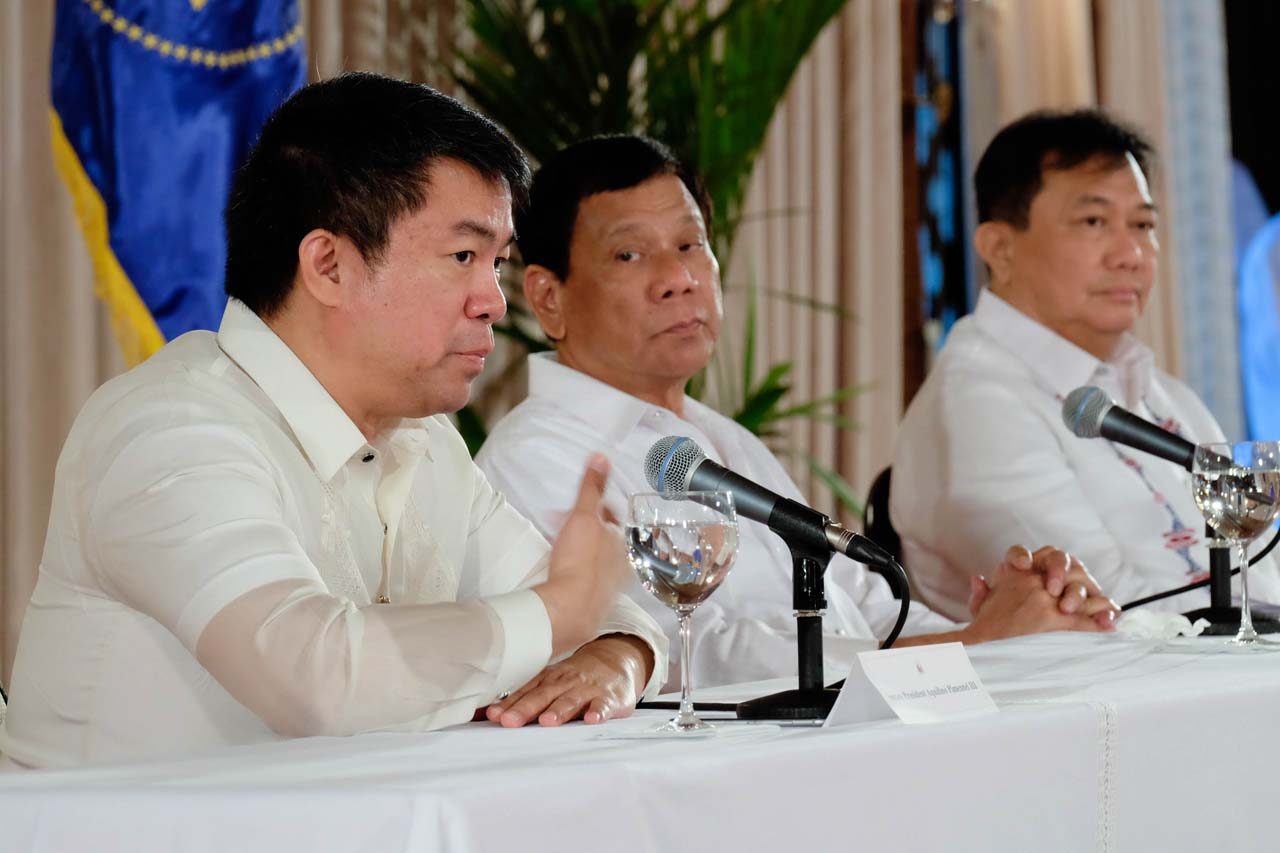SUMMARY
This is AI generated summarization, which may have errors. For context, always refer to the full article.

MANILA, Philippines – Ruling party PDP-Laban wants a “semi-presidential executive-legislative setup” under a federal system of government, with both president and prime minister having key powers.
Senate President Aquilino Pimentel III, party president, said PDP-Laban considered the public’s preference for a “strong” leader.
“We seek to benefit from the advantages of the parliamentary system while respecting the Filipinos’ preference for a strong president at the helm, at the leadership,” Pimentel said in a statement on Tuesday, March 14.
Under the proposal, the people can directly elect their president while the National Assembly would elect the prime minister.
PDP-Laban also wants to follow the system in the United States, where the president and vice president are voted for together. The latter, under the proposal, will also become the presiding officer in the Senate.
The president will remain the head of state and the nation’s symbol. But more than this, PDP-Laban said it is pushing for a “strong” president, as he would also have jurisdiction over the military, foreign affairs, and national defense.
The prime minister will be the head of the government and will have power over all matters involving domestic policy not assigned to the president.
No less than President Rodrigo Duterte has pushed for federalism, making it his top campaign promise.
On Monday, March 13, Duterte said he wants immediate action on the measure.
“And I’d like also to say that [the] unitary type of government has not solved the problem until now. It has survived for many centuries but it was already actually an imposition on the Filipino people. We have to correct it,” Duterte said in his joint press conference with both leaders of Congress.
“And so let it be known to all the people that the Senate President is equally as interested with the Speaker and me that we have to start the federal movement, whatever it is, the mechanism this year.”
Some lawmakers and senators, however, have expressed opposition to federalism.
Another contentious issue is the mode – either through Constitutional Convention or Constituent Assembly – by which the 1987 Constitution would be amended. (READ: The problem with Con-Ass? Distrust of Congress)
Senate’s new role
Under the ruling party’s proposal, Pimentel said the Senate would have a “new role.”
The number of senators in the new system would also rise “from 33 to 77 members” elected by the 11 regions proposed.
“[This is] to make sure that each of the proposed 11 regions will be represented,” he said.
The Senate, still having a national scope, would be assigned to discuss matters such as the national budget and national defense. It would also continue its present mandate of concurring with treaties and international agreements.
“In federations, the upper house typically represents the regions while the lower house represents the population. The laws which concern domestic policies don’t need to pass the Senate,” Pimentel said.
Federal vs regional powers
Pimentel said the federal government would be responsible for trade, customs, defense, national security, foreign policy, economic policy, currency, and monetary matters.
The regional government, in turn, would have exclusive powers over its areas. These include sanitation and sewage, waste management, fire protection, housing, regional planning and development, and organizing local governments and tourism promotion, among others.
There are instances, Pimentel said, where the federal and regional governments would “share powers.”
These “concurrent powers” would be implemented in the following sectors:
- social welfare
- agriculture
- employment and social security
- health care
- sports development
- energy and natural resources
- disaster risk reduction and management
- police
- election administration
- human rights
- infrastructure development
- transportation
- communications
- education
– Rappler.com
Add a comment
How does this make you feel?





There are no comments yet. Add your comment to start the conversation.